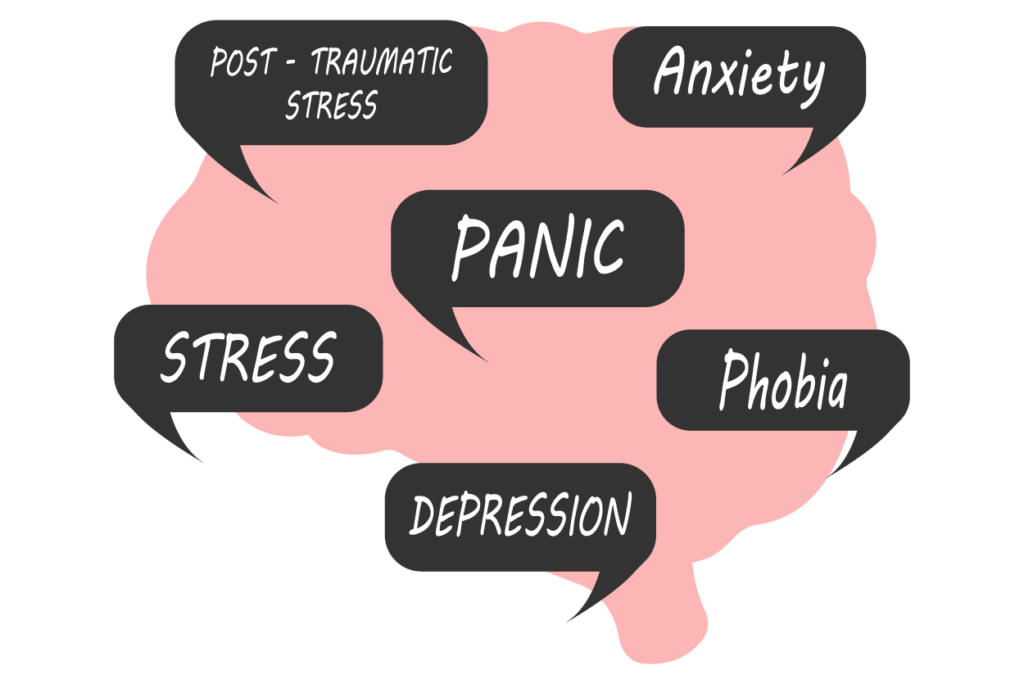Mental illness and disorders can affect people of all ages, and it leads to mood and behaviour fluctuations. Some of the most common mental illnesses include depression, anxiety, eating disorders, schizophrenia, etc.
Mental illness can hamper the quality of life, and it is highly crucial for individuals suffering from mental illnesses to undergo therapy and take medication where required. However, older adults are also prone to the risk of mental illnesses and neurodegenerative disorders like dementia and Alzheimer’s.
What is mental illness?
People need to understand that there is a difference between mental illness and mental health. While mental health refers to overall emotional well-being. Mental illnesses are diagnosable conditions which include depression and in older adults dementia.
Mental illness is a condition in which our emotions change, including our thinking and behaviour. It will affect our daily mood and, eventually, our daily life.
What are the causes of mental illness in older adults?
The factors causing mental illness in older adults vary from person to person. Some of the most prominent ones include the following:
- Genetic
If someone has any relatives suffering from a mental illness, they may inherit genes that increase the risk of mental illness, which can also be triggered due to psychological or physical stress.
- Bio-chemical imbalance
The brain is one of the essential parts of the human body. Although, after a certain age, functionality of the same decreases due to aging, there may be bio-chemical changes that result in greater deterioration thereby increasing the risk of developing dementia or Alzheimer’s.
What are the symptoms of mental illness?
Some of the most common symptoms that often reflect the individual to be suffering from mental illness include:
- Inability to concentrate
- Frequent mood changes
- Constant feeling of fear
- Inability to work
- Getting irritated easily
- Forgetting things
- Lack of feeling sadness or joy

What are the signs of mental illness in older adults?
Some of the signs of mental illness to watch for in older adults include the following:
- Trouble remembering things
One of the earliest signs of mental illness in older adults is problems remembering things. Memory issues are very common as people start ageing. However, this can often be a hint of something serious.
Loss of memory or the habit of frequently forgetting things can signify Alzheimer’s or Dementia. This is just the early stage. Some of the common signs of memory issues in individuals include
- Constantly asking for the same information
- Keeping belongings somewhere and forgetting
- Forgetting important dates
- Not being able to remember what happened a few minutes ago.
- Frequent changes in mood
Frequently changing mood is a common sign of mental illness. Early signs include being depressed, getting anxious about small things, and having a constant feeling of confusion. Their emotions switch too often.
While mood changes are a part of the ageing process, if it lasts for a long time, it indicates a problem. In the initial weeks, it will be fine. However, the condition may worsen after a certain point with people reflecting an altered personality.
- Social withdrawal
Older adults suffering from mental illness tend to withdraw themselves socially. They don’t want to interact with people and get irritated very easily. Even if they loved being at social parties, now they don’t like visiting those anymore. They tend to lose interest in almost all activities that require them to focus or interact with people.
- Changes in personal care
One of the earliest signs in older adults includes when they stop taking care of themselves or have difficulty following all the personal care routines after a point in time.
Changes in personal appearance can speak a lot about what the person is going through. They may skip bathing or refrain from having food in many instances. However, this condition will vary from person to person.
- Changes in appetite
Appetite changes are common in mental illness. Older adults may feel less hungry and as a result, appetite may reduce. This can lead to other physical health problems. In some instances, they may also feel like eating too much or binge eating.
Conclusion
If you see your loved one experiencing any of these signs for a prolonged time, do not hesitate to reach out to your doctor. They may be the best ones to help you understand how to manage these changes.
Samvedna Care offers specialized services to take care of senior citizens. They offer home care, group programs and caregiver support for those suffering from dementia. You can get in touch with them if you need help for your loved ones if you are in Delhi/NCR.
The post 5 Early Signs of Mental Illness to watch for in Older Adults appeared first on Samvedna Senior Care.
from Samvedna Senior Care https://ift.tt/SoqnE7m
via IFTTT
Comments
Post a Comment